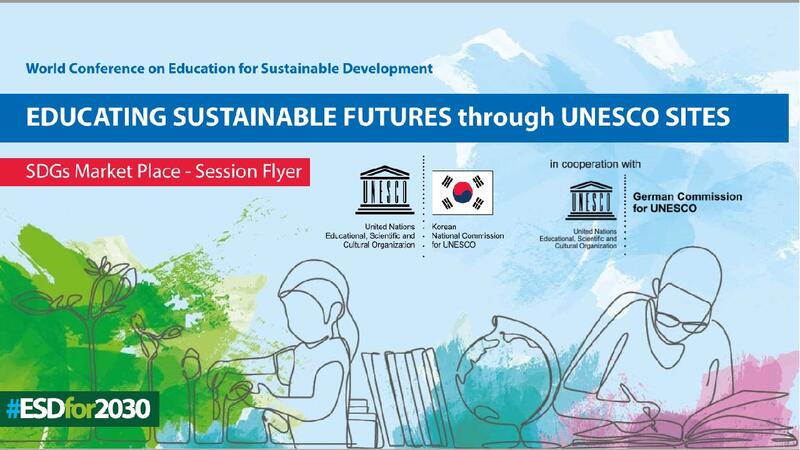The Wadden Sea at UNESCO World Conference on Education for Sustainable Development

How education for sustainable development can support communities and conservation in the Wadden Sea World Heritage Site and Biosphere Reserve was the topic of a joint presentation by Claus von Hoerschelmann and Anja Szczesinski, of WWF Germany and coordinator of the International Wadden Sea School, at a side event of the World Conference on Education for Sustainable Development. The conference, organized by UNESCO in cooperation with the Federal Ministry of Education and Research of Germany, was held as online event from 17 to 19 May 2021 and brought together stakeholders of education for sustainable development (ESD) from around the globe who adopted the Berlin Declaration on Education for Sustainable Development.
The side event on “Education for Sustainable Futures through UNESCO Sites” was a joint event by the German Commission for UNESCO and Korean National Commission for UNESCO. Speakers from both Korea and Germany gave insight into practical examples of ESD in UNESCO sites, ranging from our Wadden Sea Strategy on Education for Sustainable Development and World Heritage Interpretation and examples of awareness raising and community building in the Wadden Sea Biosphere Reserve of Schleswig-Holstein to the UNESCO Global Geopark Bergstrasse-Odenwald’s holistic approach of ESD in the frame of the United Nations Global Goals 2030 and a Youngju Elementary school teacher’s passion and effort to integrate educational activities linking UNESCO world heritage sites and ESD to his teaching curriculum.
The progress report of the UNESCO Global Training and Research Centre for Internationally Designated Areas, which is expected to open in Jeju island in 2022, highlighted not only the global connections of ESD, but also the connection between Korea and the Wadden Sea, as in 2017 Anja Szczesinski and Annika Bostelmann had joined an international expert workshop on the establishment of this very centre on Jeju island.
